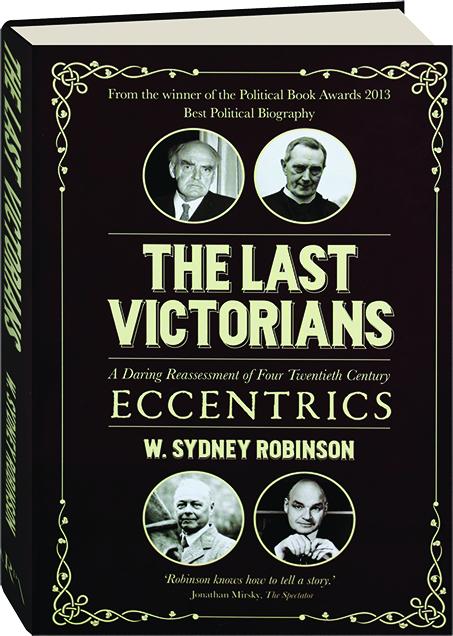Book Review: The Last Victorians by W. Sydney Robinson
Much as we sometimes like to pretend otherwise, historical eras do not have clean breaks. Bits and pieces of the Roman Empire lasted well into the Middle Ages, most of us have met people who haven’t got the memo that it’s the Twenty-First Century now, and in the case of this book, people with ties to Victorian ways of thinking lived and were important well into the Twentieth Century. Mr. Robinson in his introduction tells how he learned about this as a child and his fascination with that fact. So, four short biographies of men who were among the Last Victorians.

The four subjects are William “Jix” Joynson-Hicks, at one point Britain’s Home Secretary (kind of like America’s Secretary of State); W.E. Inge, Dean of St. Paul’s Cathedral; John Reith, first director of the BBC; and Arthur Bryant, popular historian.
The men have some similarities in their stories. Each struggled to find his place as a young man, eventually by a combination of luck and relentless self-promotion found a footing, was influential for a while, then faded into obscurity in the last part of their life. They were also all fervent anti-Socialists, and their careers largely overlap.
Each accomplished some good in their lives, but also did things that are less good or downright bad. And some questions still remain. Lord Reith, for example, had a preference for much younger companions that would raise all sorts of red flags these days. Did he take it further, or was he just kind of creepy?
And despite the fact that all these men were of a conservative bent, their positions did not always match what we would consider conservatism today. Jix, for all his favor towards censorship, was also one of the first members of Parliament to come out in favor of women getting the vote. Dean Inge was against giving women the vote, but that was because he felt men shouldn’t have got the vote either.
And then there’s Arthur Bryant, who could be called a postmature antifascist. It wasn’t that he liked Hitler or the Nazis, but his hatred of Communism led him to believe that they were a necessary thing to fight leftists in Germany. So he was an useful idiot for the forces in Britain who did favor fascism, working hard to try to keep the peace even if it meant appeasement. Once Hitler finally proved once and for all he couldn’t be trusted to keep any treaty, then Mr. Bryant turned the full force of his writing skill to helping England win the war.
Winston Churchill pops up quite a bit in these biographies, so if you want to see more of how other people of the time saw him, this is a good place to look.
Mr. Robinson has some affection for his subjects, despite their many flaws and mixed legacy. Illustrations are limited to one each photograph and drawing of the subjects, but there’s endnotes and an index. The writing style is accessible and did not bore.
I found this volume an interesting look at some secondary figures in modern history, and would recommend it to those who want to learn more about Britain in the first half of the Twentieth Century.

